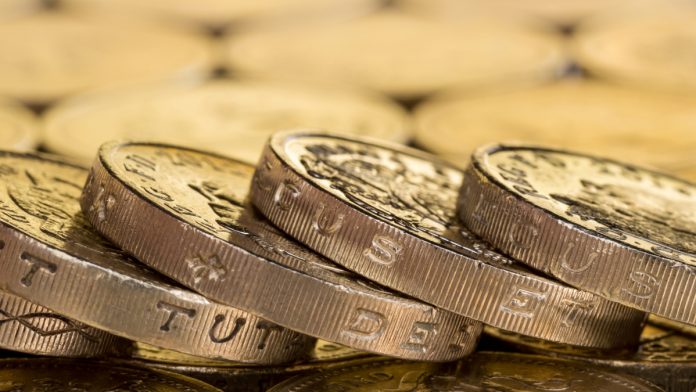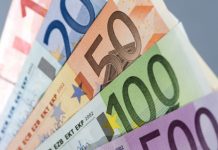The pound rallied 2.1% higher versus the euro in the previous week, its fourth consecutive week of gains. From a low of €1.1281, the pound euro exchange rate steadily climbed across the week, hitting a 20-month high of €1.1606 on Friday, before fading into the close. The pair has kicked off the new week with a move lower back towards €1.1550.
| What do these figures mean? |
|---|
|
When measuring the value of a pair of currencies, one set equals 1 unit and the other shows the current equivalent. As the market moves, the amount will vary from minute to minute. For example, it could be written: 1 GBP = 1.13990 EUR Here, £1 is equivalent to approximately €1.14. This specifically measures the pound’s worth against the euro. If the euro amount increases in this pairing, it’s positive for the pound. Or, if you were looking at it the other way around: 1 EUR = 0.87271 GBP In this example, €1 is equivalent to approximately £0.87. This measures the euro’s worth versus the British pound. If the sterling number gets larger, it’s good news for the euro. |
The pound strengthened across the previous week as investors became increasingly certain that the UK would avoid a damaging no deal Brexit. Parliament voted overwhelmingly against UK Prime Minister Theresa May’s Brexit deal. However, very few ministers are actually in favour of the UK crashing out of the EU without a deal, given the economically damaging consequences of doing so.
Theresa May had gained some support for her Plan B. The DUP privately agreed to support Theresa May’s deal in Parliament should she put a clear time limit on the Irish backstop. However, in a blow to Theresa May unblocking he current political deadlock, the Irish Prime Minister has said he is strictly opposed to any attempt to set a time frame to the Irish backstop arrangement.
Brexit developments will continue moving the pound this week. Key vote in Parliament could see Theresa May lose control of Brexit. The PM could find herself forced to put the entire divorce on hold, or go back to Brussels for further negotiations. Any move away from a hard no deal Brexit, supports the pound.
| Why is a “soft” Brexit better for sterling than a “hard” Brexit? |
|---|
| A soft Brexit implies anything less than UK’s complete withdrawal from the EU. For example, it could mean the UK retains some form of membership to the European Union single market in exchange for some free movement of people, i.e. immigration. This is considered more positive than a “hard” Brexit, which is a full severance from the EU. The reason “soft” is considered more pound-friendly is because the economic impact would be lower. If there is less negative impact on the economy, foreign investors will continue to invest in the UK. As investment requires local currency, this increased demand for the pound then boosts its value. |
Euro Soft As Concerns Grow For Eurozone Growth
Demand for the euro was weak across the previous week as soft eurozone and German data fuelled concerns that the economic growth in the region was slowing considerably. Consumer confidence remains very weak, German manufacturing activity contracted in January. European Central Bank (ECB) President Draghi also confirmed that risks for the region were building to the downside.
Euro investors will be watching ECB President closely when he gives a speech today. Any hints of a more cautious tone amid an increasingly challenging environment could send the euro lower. This is because investors will push back on hopes of the ECB raising interest rates.
| Why do raised interest rates boost a currency’s value? |
|---|
| Interest rates are key to understanding exchange rate movements. Those who have large sums of money to invest want the highest return on their investments. Higher interest rate environments tend to offer higher yields. So, if the interest rate or at least the interest rate expectation of a country is relatively higher compared to another, then it attracts more foreign capital investment. Large corporations and investors need local currency to invest. More local currency used then boosts the demand of that currency, pushing the value higher. |
This publication is provided for general information purposes only and is not intended to cover every aspect of the topics with which it deals. It is not intended to amount to advice on which you should rely. You must obtain professional or specialist advice before taking, or refraining from, any action on the basis of the content in this publication. The information in this publication does not constitute legal, tax or other professional advice from TransferWise Inc., Currency Live or its affiliates. Prior results do not guarantee a similar outcome. We make no representations, warranties or guarantees, whether express or implied, that the content in the publication is accurate, complete or up to date. Consult our risk warning page for more details.
This article was initially published on TransferWise.com from the same author. The content at Currency Live is the sole opinion of the authors and in no way reflects the views of TransferWise Inc.





